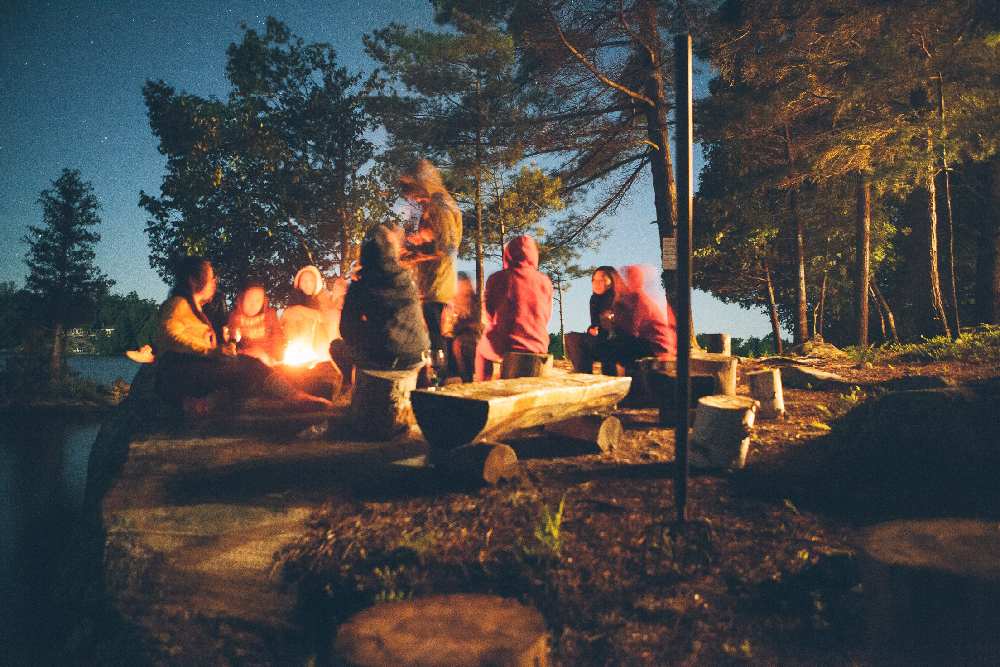Over the summer months, camping is a fun way to get outdoors and build memories with family and friends. By using some common sense, planning ahead and remaining alert, your camping trip can be a positive experience for all.
As you get ready to head out into nature, here are a few recommendations for staying safe.
BE PREPARED
Before you leave:
- Check the weather forecast
- Pack an emergency supply kit that includes: a first-aid kit, compass or GPS, map, flashlight, blankets, batteries, and medications.
- Let friends or family know where you are going and when you expect to be back.
- Check your gear. Make sure that your tent, cooking equipment, flashlights, etc. are in working order.
- Pack clothes and bedding that are appropriate for the weather. Be prepared for changes in conditions and temperature.
- Carefully consider your food and water supplies. Do you have enough? Are there places nearby where you can stock-up if necessary?
THOUGHTFULLY CHOOSE YOUR CAMPSITE
Backcountry camping, far off the beaten path, is not for everyone. Consider the following as you plan your trip:
- Do you have young children or people with physical limitations in your group?
- Do you need a bathroom or potable water nearby?
- Can your campers hike long distances?
- Are they able to sleep on the ground, in rough terrain?
AVOID FOOD HAZARDS
- When packing food supplies, make sure that you are able to cool perishables adequately and keep raw and cooked foods separate.
- Be vigilant about hand-washing before handling food.
- Do not leave food out on picnic tables or unsecured as this will increase your chances of attracting wildlife. To prevent unwanted confrontations with an animal, pack your food in tight, waterproof containers and store them in an insulated cooler. Storing your food in a car or a storage locker are also safe solutions.
PRACTICE CAMPFIRE SAFETY
- Fires within your campground site should be at least 15 feet from tent walls, shrubs and trees.
- Keep your fire small and contained in a designated area like a fire pit.
- Never leave a fire unattended.
- Always keep a water bucket nearby and put the fire out before leaving or going to sleep — making sure to drown all the embers, not just the red ones.
- Never use fuel-burning equipment such as gas stoves, heaters, lanterns, and charcoal grills inside a tent, camper, or other enclosed shelter. It can cause dangerous levels of carbon monoxide to build up.
USE INSECT AND SUN PROTECTION
- Use insect repellent that doesn’t dissolve easily in water.
- Make sure you check for ticks daily.
- Wear long-sleeved shirts and long pants when hiking to avoid direct contact with insects and as sun protection.
- Avoid overexposure to the sun and always use a broad-spectrum sunscreen with at least SPF 15.
STAY HYDRATED
- Drink water regularly throughout the day, even if you don’t think you’re thirsty.
- Bring at least a 3- to 5-day supply of bottled water with you.
AVOID WILD ANIMALS AND PROTECT YOUR PETS
- Avoid touching, feeding, and getting near wild animals.
- Enjoy watching them from a safe distance in their natural surroundings.
- Keep foods stored in sealed containers and out of the reach of animals.
- Make sure your family pets are vaccinated and always keep a close eye on them.
- Check for ticks and remove them promptly.
- Make sure pets have plenty of water, food and shelter.
AFTER-CAMP CARE
When you get back from your camping trip:
- Check yourself, your family, your pets, your clothes and your equipment for ticks and other insects.
- Wash and dry all towels and clothing that you brought with you.
- If you discover a tick, beware of the risk of Lyme Disease. Anyone active outdoors or involved in recreational activities such as hiking, camping, hunting and fishing is at risk of exposure to ticks that carry the agent that causes Lyme disease.
As long as you use common sense and remain alert to your surroundings, camping is a great summertime activity. So get out there and enjoy! For more information on outdoor safety, contact TSS.


“Solid advice! I’d also recommend a personal locator beacon for remote areas. It can make all the difference in an emergency.”